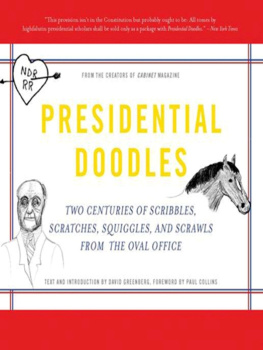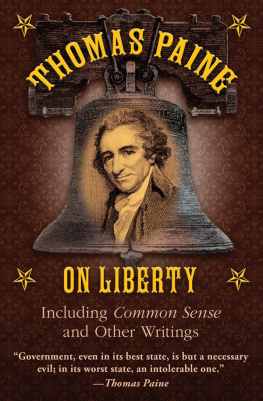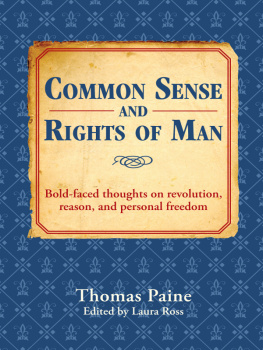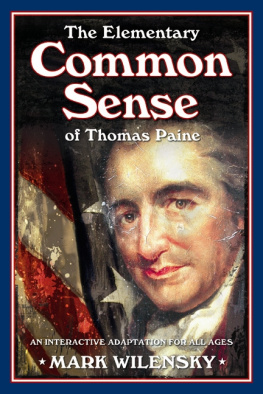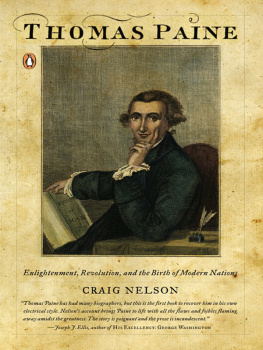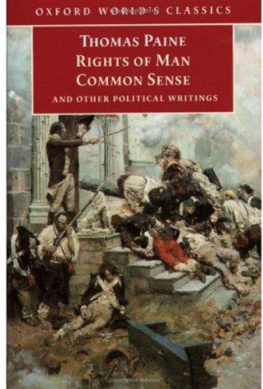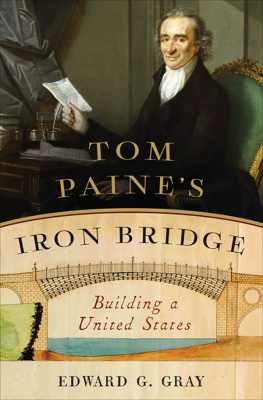CONTENTS
Banvard's Follly: Thirteen Tales of People Who Didn't Change the World
Sixpence House: Lost in a Town of Books
Not Even Wrong: AFather's Journey into the Lost History of Autism
The Trouble With Tom
The Strange Afterlife and TimesofThomas Paine
Paul Collins

To Bramwell
First published in Great Britain 2006
Copyright 2005 by Paul Collins
This electronic edition published 2010 by Bloomsbury Publishing Plc
"My Favourite Things" copyright 1959 by Richard Rogers and Oscar Hammerstein II. Copyright renewed. Williamson Music owner of publication and allied rights throughout the world. International copyright secured. All rights reserved. Used by permission.
The right of Paul Collins to be identified as the author of this work has been asserted by him in accordance with the Copyright, Designs and Patents Act 1988
All rights reserved. You may not copy, distribute, transmit, reproduce or otherwise make available this publication (or any part of it) in any form, or by any means (including without limitation electronic, digital, optical, mechanical, photocopying, printing, recording or otherwise), without the prior written permission of the publisher. Any person who does any unauthorised act in relation to this publication may be liable to criminal prosecution and civil claims for damages.
Bloomsbury Publishing Plc, 36 Soho Square, London W1D 3QY
A CIP catalogue record for this book is available from the British Library
ISBN 978 1 4088 2063 6
www.bloomsbury.com/paulcollins
Visit www.bloomsbury.com to find out more about our authors and their books.
You will find extracts, authors interviews, author events and you can sign up for newsletters to be the first to hear about our latest releases and special offers.
CONTENTS
But who knows the fate of his bones, or how often he is to be buried? Who hath the oracle of his ashes, or whither they are to be scattered? The relics of many lie like the ruins of Pompey's, in all parts of the earth; and when they arrive at your hands these may seem to have wandered far, who, in a direct and meridian travel, have but a few miles of known earth between yourself and the pole.
-Sir Thomas Browne, Hydriotaphia,
or Urne-Buriall (1658)
A TAXI SPEEDS through the rain, dashing water up onto the sidewalks of Bleecker Street like a flume ride. I run around the corner up to Grove and duck under the awning of number 59. It's a handsome buildingdevilishly handsome. If it were a man, and if I were gay, I'd have a crush on it.
Open its door and a swell of piano chords roar out into the downpour: "Raindrops on roses!" comes the cry from within. Creaking wooden steps descend into a low-ceilinged room packed with a mass of men and women-but mostly men-and twinkling over the bald and balding heads, as well as some immaculately groomed ones, there are glittering strings of electric Christmas tree lights. The swelling chorus of drunken voices bellow at a trim, dapper fellow banging away on a ploinkety old red piano:
... and whiskers on kittens,
Bright copper kettles and warm woolen mittens,
Brown paper packages tied up with strings-
These are a few of my favorite things.
The squeeze through the crowd toward the bar takes several minutes, and I catch a tiny squall of conversation between just about the only two men not belting out in their best baritone voices.
"I was innocent back then," one stirs his drink.
"Yeah," the other snorts. "Right."
Cream-colored ponies andcrispapple strudels;Doorbells and sleigh bells and schnitzel with noodles;
I finally reach the polished wooden bar.
'What can I get you?"
Wild geese that fly with
"I'll have..."
the moon on their wings-
'What?"
"I'll ..."
These are a few of my favorite things.
"Can't hear you."
I resort to telegraphing between syllables of singing, yelling:
"I. Want."
Girls in white dresses with blue satin sashes,
"A. Hein. Eh. Ken."
"Oh. Kay."
He takes a couple more orders, and my beer arrives as the song ends in a final crashing chord and a cacophony of applause.
"Thanks." I hastily count out from my wallet. "Hey, I'm trying to find out a little about this building. Its history."
"It's got plenty of that."
"Yeah. I ..."
"There's a plaque out front, and..."
I get no kick from champagne!
He finishes his sentence soundlessly beneath the barrage and gives a helpless shrug at the music. I ford upstream through knot after knot of men, drinking my beer wide-eyed. It's like one of those festive bar crowds you only see in old black-and-white movies: men hanging off each other and raising glasses and warbling. I'm probably the only guy here who doesn't know all the lyrics being sung, and the place keeps filling impossibly with even more people.
Several songs later I've drained my beer, and half trip over a stranger's shoes, out into the cold night air. It's stopped raining; a few stray drips shake down from the awning in a gust, and I crouch in the darkness to squint at the brass plate bolted into the brick wall of the ancient building.
THOMAS PAINE
born 1737
died 1809
On this site.
All Mankind Is My Country.
To Do Good Is My Religion.
I Believe in One God
And No More.
This plaque placed here by
the Greenwich Village Historical Society
June 9, 1923
It stares out into the darkness, as if to really say: what strange ends wecome to.
It's a bar called Marie's Crisis now. Who'd imagine this as the place where his life came to a halt? There might have been so many other endings for the firebrand Common Sense rebel of 1776, the radical on the run from execution in London, the senator of revolutionary France. Paine alone claims a key role in the development of three modern democracies. He was a walking revolution in human formthe most dangerous man alive. But dead? The plaque here could be for anybody, anybody at all: a forgotten minister, perhaps, or long-dead mayor.
The letters of the sign drip with the windblown remains of the rain. MyCountry.
I turn and survey Grove Street in the darkness. Around here is the old Greenwich Village, a vision of New York in respectable brownstone, brick and wrought iron, the city you imagine from faded lithographs. And yet even here, things quietly change. All sorts of businesses have been housed in this building over the centuries; before this plaque was attached to 59 Grove Street, the place was a delicatessen. Imagine that: Edwardians buying ham sandwiches and deviled eggs where a Founding Father once fell. It's almost as strange as belting out show tunes over the spot.
But this is indeed where he died. It wasn't for a lack of trying at other addresses. I guess you could say that Thomas Paine has died over and over. He has died innumerable times in effigy at gatherings in the English countryside; he had the visage of his corpse stamped into British coins; his imminent death predicted among bloodthirsty French mobs, foreseen in the apartment of James Madison and in the back room of a New York baker, and witnessed in the boarding rooms of Grove Street. Some people have lived everywhere, but Thomas Paine is altogether more rare. He has died everywhere.
The old man sat by a front window in Greenwich Village, visible from the street, watching the world and the country he had created passing him by. Here he sat: he who was the first to coin the phrase
Next page

